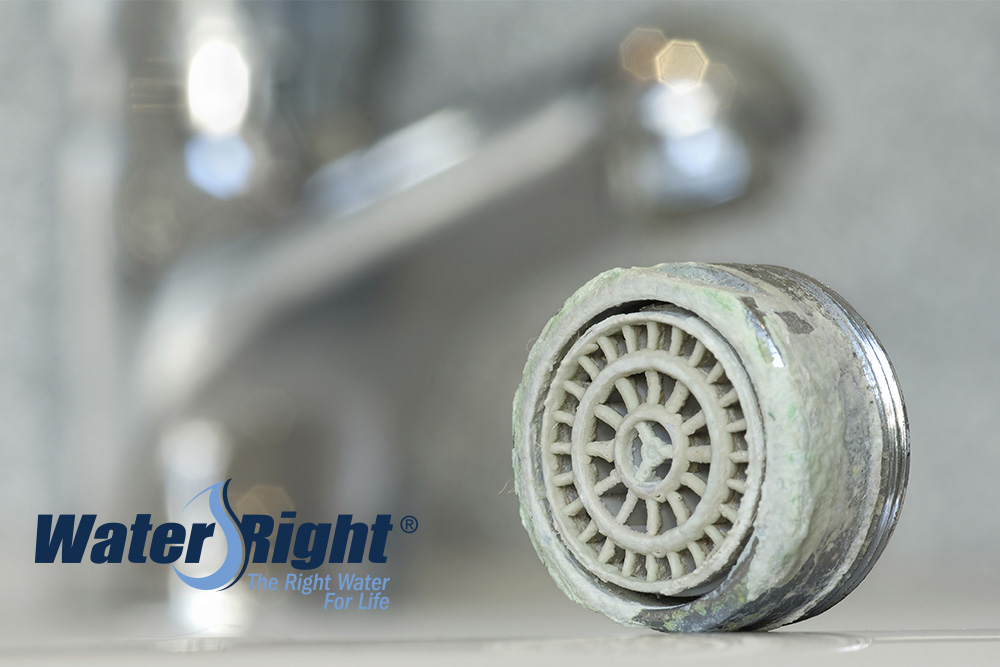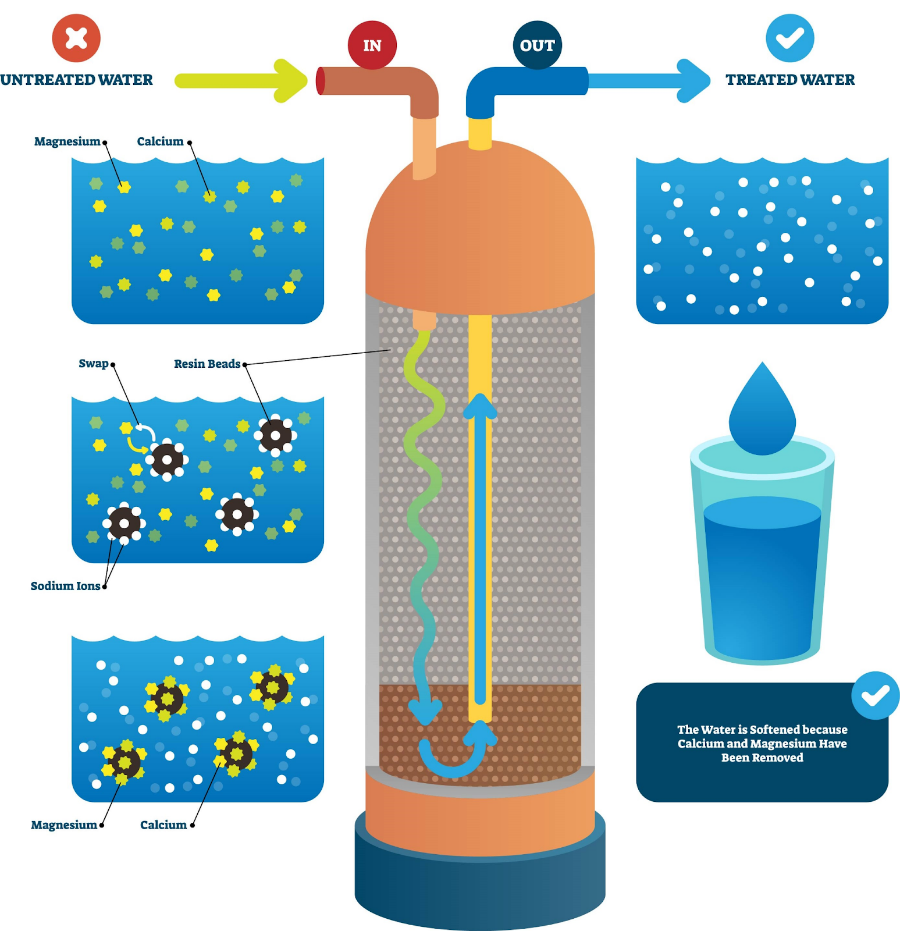Hard Water – What is it?
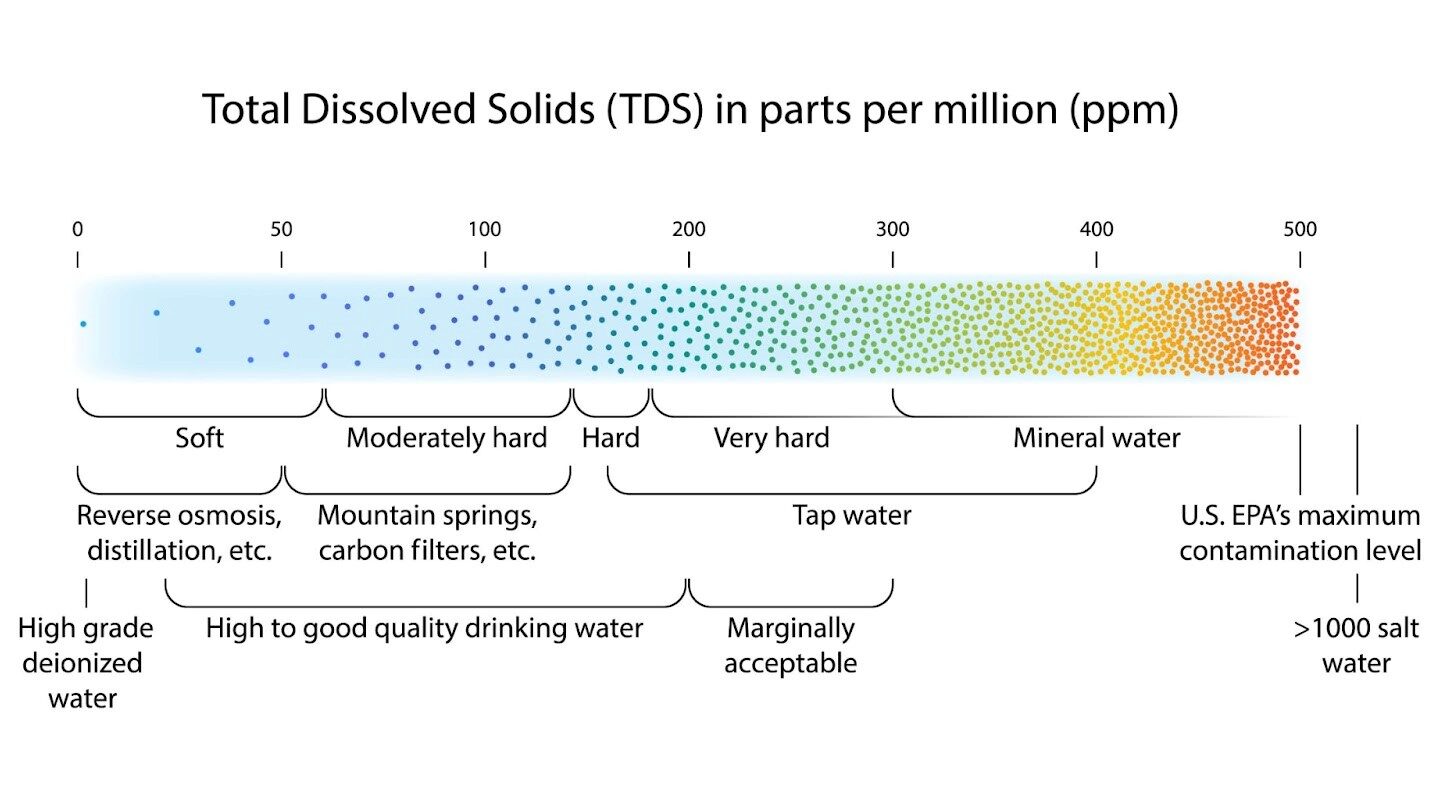
Hard water can be a real challenge for property owners. It can cause spotting on your glasses and dishes, create water stains usually found in bathtubs, toilets, and sinks, and make cleaning next to impossible with the calcium deposits in your faucets and showerheads.
Because water touches everything, we also need to visit the effects of hard water on skin and hair, taste and even your health when it comes to drinking it.
Before we can even begin to discuss its problems, how to diagnose hard water, or start talking about solutions, we need to better understand what it is and where it comes from. What is hard water?
– Hard Water Explained
– Hard Water vs Soft Water
– Hard Water Signs
– Hard Water and Your Appliances
– Cleaning Hard Water Stains and Hard Water Build Up
– Hard Water Elements & How To Tackle Them
– Hard Water Areas Near You
Hard Water Explained
The very definition of hard water is water with an elevated mineral count of undissolved sediment.
Hard water is usually high in calcium and magnesium. As groundwater travels, it often percolates through limestone, where these deposits can form. To define hard water a little further and find the causes of hard water, let’s review the water cycle pictured below or The Water Cycle | U.S. Geological Survey – USGS.gov.
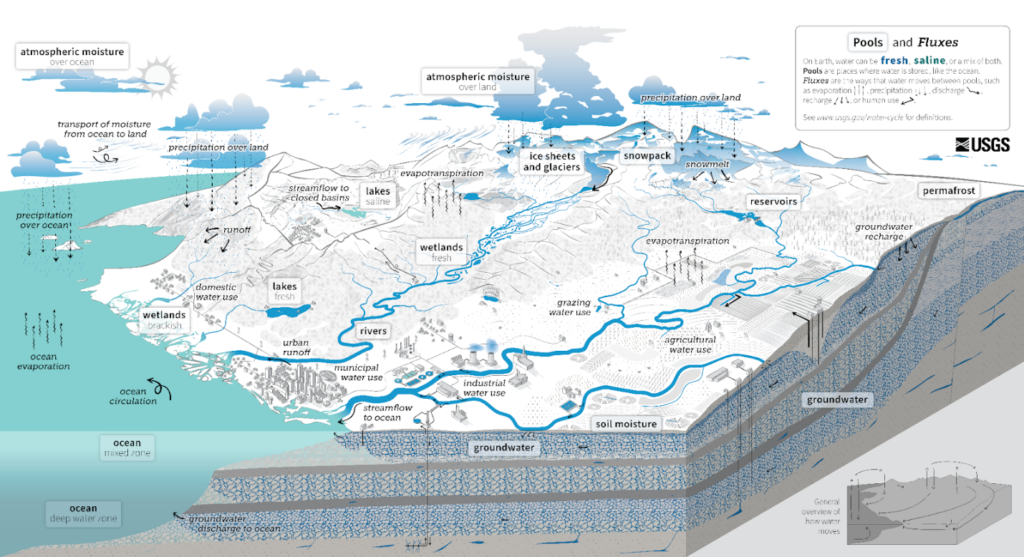
The water cycle, as pictured above, shows the movement of water and its change into different forms. Hard water is created when it moves from the surface of the ground downward toward underground aquifers. On this path, hard water minerals, like calcium and magnesium, enter the water.
Hard Water vs Soft Water
Visibly, water can look much the same, but if collected from different sources, it can vary a great deal. To tell the difference between hard water and soft water as well as know for sure where your water measures up on the scale, a test is needed to calculate the exact hardness by grains per gallon (GPG).
It will also help you decide what you may or may not need to do to get rid of hard water if your home, office or industrial business tests above the recommended level shown here.
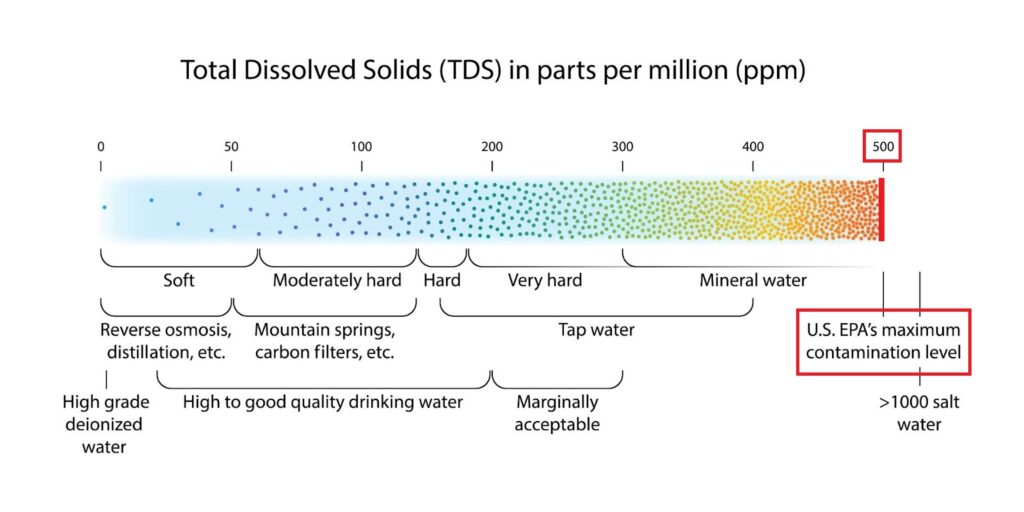
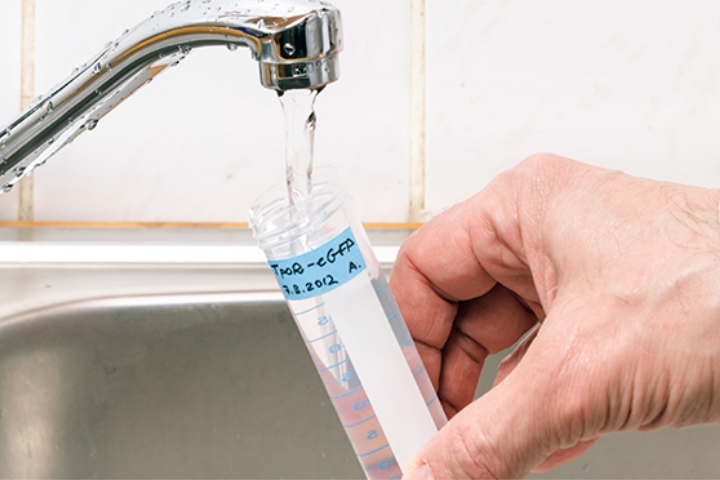
Hard Water Signs
Until a water hardness evaluation is performed, it’s difficult to gauge how hard your water may be, but if you find yourself asking some of these simple questions below, you’re probably already detecting that there is some hardness evident.
Does hard water cause calcium deposits?
How to get rid of hard water stains?
Is there a hard water build up remover?
How can you fix hard water?
Is there a glass hard water stain remover?
Is hard water bad for you?
What are the effects of hard water on hair?
Does hard water damage hair?
Does hard water cause hair loss?
What are the effects of hard water on skin?
Can you drink hard water?
Is there a hard water filter for garden hose?
How to get rid of hard water stains in shower?
How to get rid of hard water stains in toilet?
And ultimately, do I have hard water?
Hard Water and Your Appliances
Hard water and your appliances aren’t a good mix. This can cost you money and time. Depending on the situation, it can leave you with a big mess to clean up as well.
One example is your water heater. If your water is hard, your hot water heater, on average, could go from a lifespan expectancy of 10 years or more to as few as four to six, depending on the level of hardness and usage. As mineral deposits settle in the bottom of your tank, its efficiency decreases as well. This affects the time and money mentioned above, but when your water heater decides to quit, you may end up cleaning up after it because it floods your home.


Cleaning Hard Water Stains and Hard Water Build Up
It can be extremely frustrating when cleaning hard water stains and hard water buildup on valves, spigots and more. Hard water buildup on faucets and showerheads, hard water stains in the toilet and sinks are just a few examples that can be a real hassle to clean and keep from embarrassing situations when hosting guests.
In addition to attempting to scrub away everything hard water contains, it’s also a challenge to find the best dish detergent for hard water, and ultimately trying to get rid of hard water stains altogether. Although there are several cleansers out there that can help tackle tough staining and buildup, this is only a short-term solution. This brings us to our next topic…
Hard Water Elements & How To Tackle Them
Because hard water elements are un-dissolvable and can wreak havoc on everything they touch
including your appliances (ex. washing machine, dishwasher, refrigerator water and ice dispenser, etc.), skin, hair and affects the taste of drinking water (some experience a metallic taste, or a dirt taste). As mentioned earlier, the best way to rid yourself, your home, and family of dealing with them, is to remove them altogether.
So, your next question might be – is there a hard water filter for my house?
Simple answer…. Yes!
Here’s how it works…
Rather than looking for a hard water filter for the sink, a hard water filter for the washing machine and other items you use individually, a water filter system for your home would filtrate the water from its point of entry and allow you to cover all of them and more. Then the hardness is removed before it enters your plumbing, appliances and makes its way to what you treasure the most, your family and guests!
Hard Water Areas Near You
We’ve discussed what hard water is, the damage hard water deposits can cause and what can be done to prevent hard water in your home, office or industrial business, but we can also take a look at hard water areas to give you an idea of what you may be dealing with beforehand.
In the meantime, here is a geological survey of the United States with some great information.
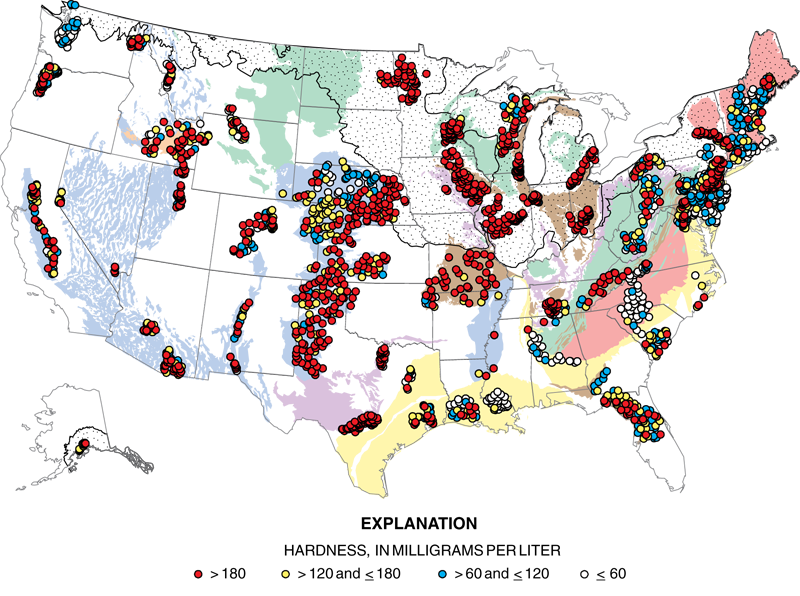
We hope you find this information helpful when it comes to better understanding hard water, how it can create plumbing, maintenance and household cleaning issues, signs to look for, the importance of testing, and finding a long-term solution that fits your specific needs when it comes to your home, office or industrial business.
Because water touches everything, the quality of it is important and can make all the difference. To learn more, we invite you to find additional information on our website, negleyswater.com or click FREE QUOTE to get started solving your water problems today.
